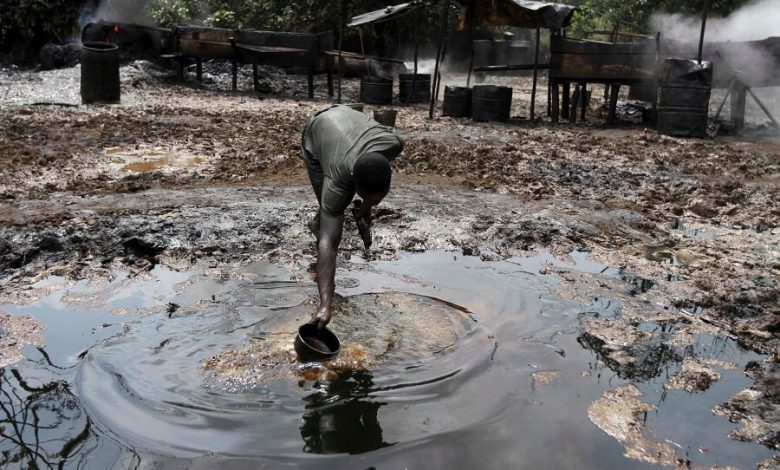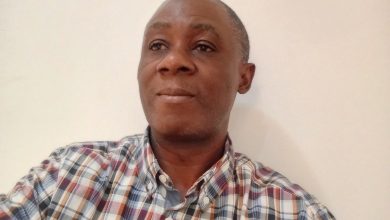
The Nigerian government has a track record of glossing over complaints of environmental pollution.
A few weeks ago, Niger Delta king, Godwin Bebe Okpabi, leader of the Ogale community in Ogoni land, sued Shell for what he described as decades of oil pollution and destruction of livelihoods. He is demanding a clean environment and compensation worth about £88 million. The case started initially around 2016 in Nigeria. He insists that leakages from oil exploration and exploitation in his community have led to devastating effects on the livelihoods of community members, whose farmland and drinking water have been polluted, leading to health afflictions. The case is now being heard in London.
Shell and the Ogoni people share a contentious history. Especially since a chain of crisis led to the murder of four prominent Ogoni leaders in 1994 by irate youths. Later on the renowned environmental activist, Ken Saro Wiwa, and his eight kinsmen, were blamed for the killings and subsequently executed by the military junta led by the late dictator, Sani Abacha.
Although Shell left Ogoniland in 1993, it did so in a hurry amidst widespread social unrest and protests. Many of its facilities were not decommissioned and some pipelines reportedly still carry oil through the area.
The Nigerian government has a track record of glossing over complaints of environmental pollution. The government appears to always be on the side of the international oil companies operating in Nigeria. This is because government relies on them for tax revenue. The government appears to be continuously seeking ways to appease the companies to ensure steady cash flow.
Furthermore, most the Nigerian agreements with oil companies are in the form of joint ventures, which mean that the partners have share in both the profits and liabilities of oil production. As a result, any fines incurred become a responsibility that are distributed according to the percentages contained in the JV agreements. Unwittingly, the government seems to pay less attention to the demands of communities for ecological justice in the Niger Delta, partly because such demands will have financial implications on it, as well as the companies.
Loss of Confidence in Nigeria’s Judiciary Apparent
The fact that the case is before a court in the United Kingdom, for an issue that took place in Nigeria, confirms the lack of confidence the claimant has in the judiciary in Nigeria. Recently, the World Justice and Rule of Law Index ranked Nigeria poorly in judicial accountability, with the country placed on the 120th position out of 130 countries globally.
A survey conducted by Gallup, a US consulting firm, in 2021, revealed that only 36 per cent of Nigerians trust their country’s judges. According to a 2020 Judicial System Perception Poll conducted in collaboration with the Nigerian National Bureau of Statistics, 88 per cent of Nigerians perceive corruption as common in the judicial system. Another 63 per cent of the population described their experience with the judicial system as negative, suggesting that justice is for sale to the highest bidder in the country.
Compensation to Communities Deflects Attention From Restoration
Demands for compensation by farmers whose livelihoods have been destroyed remain a valid one. It is consistent with ‘the polluter pays principle.’ A more sustainable approach would be a complete restoration of the farmlands, so that incoming generations can make use of them years later, rather than a simple one-off payment.
However, there is a history of compensation paid to several communities in the Niger Delta region. In 2015, the Royal Dutch Shell announced a financial compensation of £55 million to 15,600 farmers and fishermen in Bodo, Ogoniland, who were impacted by oil spills in 2008 and 2009. In 2021, the Anglo-Dutch oil giant agreed to pay an equivalent of £81 million (N45 billion) to end a case of oil spill with Ejama-Ebubu, a community near Eleme in Rivers State. Another £12.2 million was paid to communities, families and farmers impacted by Shell’s oil spills in Ikot-Ada Udo, Oruma and Goi in the Niger Delta.
Comprehensive Environmental Restoration in the Niger Delta Not Yet in Sight
Despite all the efforts made in cleaning up the region, the Niger Delta remains heavily polluted. A recent study commissioned by the Bayelsa State Oil and Environmental Commission chaired by the former Archbishop of York, Rt. Reverend Lord Sentamu revealed what was described as an environmental genocide in a report that was widely publicised. The Nigerian government set up the Hydrocarbon Pollution Remediation Project (HYPREP) to restore communities impacted by hydrocarbon pollution in the Niger delta.
The efforts have been ongoing but observers are divided over whether the work done so far has been commensurate, when juxtaposed with the resources expended so far. Many of the project’s interventions have been in Ogoni land, while the oil pollution spread across the Niger Delta. Critics of HYPREP insist that a comprehensive approach to the clean-up is necessary. This is because many of the rivers and creeks in the region are integrated and it is difficult to clean one side and leave the other.
Uche Igwe is a visiting professor at the Polish Centre for African Studies, Wroclaw. He can be reached on ucheigwe@gmail.com




